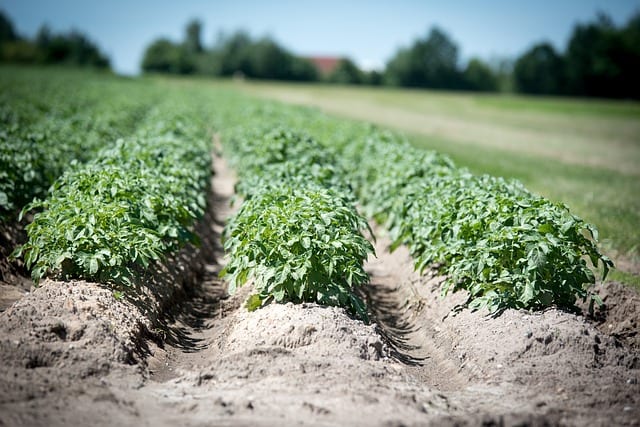Portage la Prairie, MB, November 26, 2018 – McCain Foods (Canada) announced today infrastructure investments totalling $75 million for its Portage la Prairie and Carberry, Man., facilities. The investments further strengthen the company’s potato processing presence in Western Canada.
“Our investments at both the Portage la Prairie and Carberry facilities are testaments to McCain’s ongoing commitment to growers, employees and the communities in which we operate in Manitoba,” said Jeff DeLapp, president, North America, McCain Foods Limited. “McCain is a proudly Canadian family-owned business that values the foundational relationships shared with Manitoba growers. Together we continue to strengthen and grow our businesses in both Manitoba and Western Canada.”
From 2016 to 2019 McCain has committed a $45 million investment in the Portage la Prairie facility, including the installation of new high efficiency potato sorting system, as well as cutting edge processing and packaging equipment. A new onsite waste water treatment, upgrades to the facility’s heating, freezing and refrigeration systems will help to improve the facility’s environmental footprint, and revamping the potato receiving area will allow multiple truck deliveries to unload efficiently at the same time.
Just over $30 million investment has been committed to the Carberry plant over the same time period, including the new installations of auto sampling equipment, a blanching system, and improved heating and refrigeration systems for the entire facility as well as other upgrades.
“While we complete our investments in the Portage la Prairie facility, I am pleased to announce that Dale Collingridge, Production Manager at the Carberry facility and a 42-year McCain employee, has agreed, together with the support of the Portage la Prairie leadership team, to oversee the potato receiving area until the multi-million investments are completed,” added DeLapp.
A strong, sustainable Canadian business
Manitoba growers annually harvest about 26,300 hectares of potatoes, which represents about one-fifth of Canada’s total potato crop. The $75 million investment from McCain is reflective of the continued demand for McCain frozen potato and potato specialty segments in both the retail and food service businesses and signals the company’s long-term commitment to Manitoba.
Today, more than 550 employees work at the two facilities in Manitoba and are part of a proudly Canadian-based company with a global enterprise, including more than 21,000 employees operating out of 52 production facilities on six continents with sales in excess of CDN $9.5 billion.
With few exceptions, McCain’s potato products are made from local potatoes grown on farms close to our facilities, which are spread across Canada in Manitoba, Alberta, and New Brunswick. McCain works closely with these agriculture partners, both growers and schedulers, to ensure a genuine commitment to long-term business partnerships.











